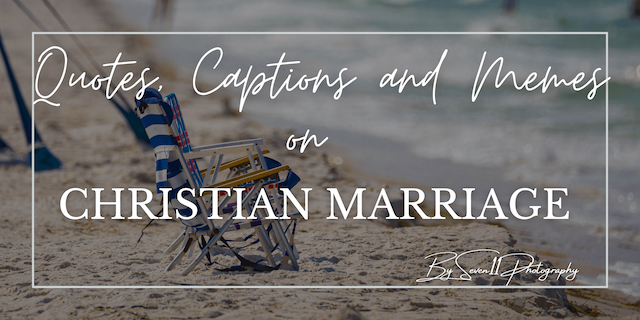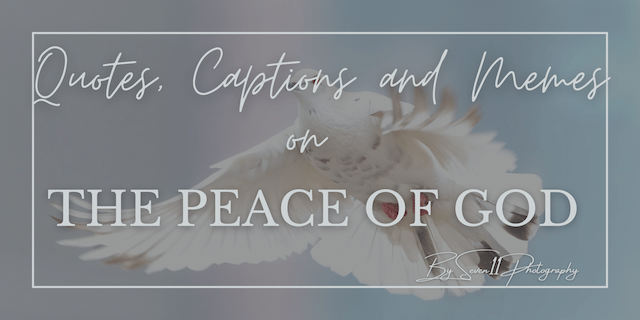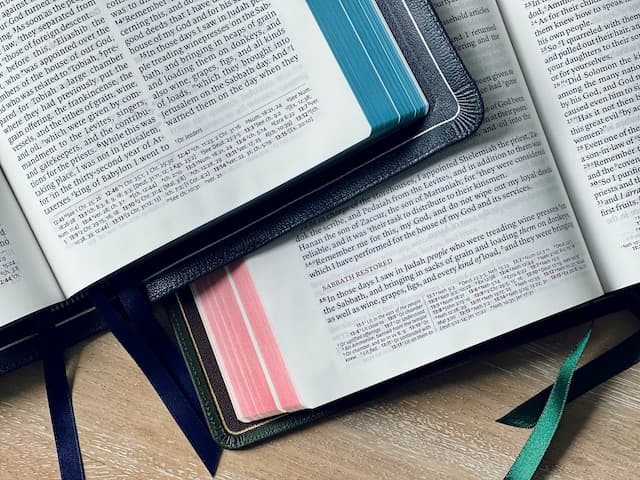New Christian Exodus: Discussing Faith with a Millennial Pagan - Inspiration Photography and Christian Devotions

It shouldn’t surprise anyone that there is a new Christian exodus building with each new generation. Christianity, when it was a new faith, rapidly drew people from other beliefs into the fold all around the world. But today, we are watching Millennials and Gen Zs walking away from Christianity, even after being raised in church. This is not a disconnect with Millennials and spirituality, quite the opposite. We are watching them turn to alternative spiritual paths like Pagan, Wicca, Buddhism, and Agnosticism. It isn’t a question of faith and spirituality but one of spiritual identity. They aren’t losing spirituality but building bridges to new faith.
There are challenges faced by Christian Millennials and Gen Zs today that we have never witnessed. Therefore, we decided to go a different direction with this article. We are interviewing a Millennial who was a Christian, now a practicing Pagan. Not just any interview, but one with my own brother. He and I grew up in the same church with the same Christian parents. This isn’t about attempting to convert him, but to learn and understand where Christianity may have failed. My hope is to gain an understanding of why young Christians are leaving the faith for alternative spiritual paths. Armed with this knowledge, I pray we can begin building bridges of faith and spirituality back to Jesus. So, I asked my brother spiritual questions and also provided a “Millennial” targeted answer to each of his responses.
About our Guest
John W Snow III, or as I call him Waid, is my half-brother (same mom). But we have never seen each other in that way and grew up very close. Waid was almost always invited everywhere I went and knew my friends about as well as I did. He is someone I have a great deal of respect for, and I know is always in my corner. Before getting married, he was my most trusted confidant. In fact, my little brother gave me regular advise and reassurance as I began dating Kathleen. Now, my wife of 13 years.

Since we grew up together, obviously we had the same Christian foundation. I had experienced a large number of faiths, being a military brat, but Waid only knew one denomination early on. Just like any denomination, there are great churches then some that may not be the best fit. Even I fell away for a time, but Waid started seeking new outlets. He struggled with his faith and soon found alternative spiritual paths.
He is a wonderful person, a loving father, and a faithful friend. Waid is always ready to join in the fun. He has a great outlook on life in spite of things we had to face in childhood. I say this so you have an idea of who Waid is, before any unconscious biases. With that said, Waid is now a practicing Pagan and part of the LGBTQ+ community.
Please read, seeing a person who was hurt by a church. A person who is loved by God and is loved by me.
Christian Exodus: Interview with John W. Snow III

In this interview, I have the privilege of engaging in a thoughtful conversation with my brother, Waid. He is a Millennial who chose an alternative spiritual path from Christianity. Our aim is to foster understanding, inspire reflection, and promote open dialogue about faith and spirituality to discover the challenges faced by Millennials and Gen Zs. Through this dialogue, I hope to encourage a deeper exploration of our own beliefs and the ways in which we can connect with others.
Please note that all statements by our guest were left fully intact and unedited for validity and out of respect. I try to address these in my response; however, if you question any of his comments or Biblical statements, please remember this is a candid interview, not meant to be interpreted as Christian truth.
What initially led you to explore first Wicca and then general Paganism, and how has it impacted your perception of spirituality?
Well, I began asking questions about things I felt contradictory between what I read in the Bible and what I hear at church. We both know the Church of Christ can be a bit puritanical. The first “strike” was hearing the responses that basically asked me not to question things, as that could be seen as how the devil gets in. Second, when I still asked, (for example: even with all the good the Dhali Lama or the nicest person who happened to be gay.. would they still go to Hell no matter their actions in life) the answers of “Hell for non-belief” or even for just not getting all the Christian boxes checked.. was the second strike.
Then…
So, I started rereading the Bible to answer my questions. I found a few contradictions (at least from the sermon to what was said and some contradictions in tone even within the New Testament). So, I then read the Talmud, then the Quran. Then moved to other established religions, and then to the reconstructed pagan ones (starting with Wicca). When I was 14, we both know it was difficult. That’s when I took the step to leave Christianity for (initially) Wicca, and later to general Paganism. I mainly converted because belief didn’t hinge on the fear of “be good or else.” It’s to be a good person because it’s the right thing to do, and it’s empowering to take responsibility for your life (no Job-like, God is testing me trials). It honestly felt like a huge weight was lifted off my chest.
Seven11’s response
Although I won’t mention the things you had to endure during your early teens, I will say they are things no child should have to experience alone, and I wish I was there to protect you from them (I was away at college then serving in the US Navy). And it is hard to grasp salvation through Christ when you see non-Christians doing great works. But I can speak with certainty that Christians condemning someone for their sins is not a foundational teaching of Jesus. In fact, it is only through our faith in Him that we can be saved! We are ALL sinners and unworthy of the grace we are given. I just hope you know that churches can be vastly different, and many would cringe knowing this happened to you.
As a Christian, I’ve always found comfort in the teachings of Jesus Christ. What aspects of Paganism resonate with you and provide spiritual fulfillment?
That’s both an easy one and a hard one. Easy because, if you stick to the gospels, then we both live rather similarly. Basically, be a good person, mind your own business, and don’t flaunt your faith and spirituality for attention. Hard because, when you boil it down to that it can be frustrating to truly get across the differences those three things are said and done between a Christian (or a “Christian”) and someone of an alternative faith. In Paganism, we don’t see that a certain God/Gods don’t exist outside of our faith practices, just that they may be antithetical to our wellbeing so we don’t call on them.
When a Pagan asks for religious freedom, it’s for both freedom OF and freedom FROM religion. Looking at the religious freedom arguments from “Christians” in the court dockets, it’s the religious freedom to tell me that I can or cannot do something. Those.. are not the same thing.
Seven11’s response
That makes a lot of sense and something I would like to discuss later with you. I have always seen religious freedom as a human right to call on any God you choose or to live a spiritual-free life. But I can see how this freedom is used by some in the Christian faith. I would hope that it is attributed to “loving your neighbor.” Since Christian’s have faith that commandments are from God, we feel that abiding by them keeps society in God’s grace and mercy. But I can see where that ideology could also infringe on others’ religious freedoms. Perhaps that is something we should all look at and pray on.
We often hear that Millennials are turning away from organized religion. What, in your opinion, are some of the reasons behind this trend?
In my opinion, Millennials and even Gen Z are looking for a Spiritual path for comfort and to take some semblance of control of their life. Many denominations ask you to surrender control to God. Then, if/when they do, there is no deliverance in this life. This, coupled with the fact that most congregations preach faith through fear of Hellfire rather than through Love of God.. our generations get plenty of bad deals from the rest of society, we don’t need it from our voluntary religion.
Seven11’s response
As a fellow Millennial, I can agree there. Each generation wants to tell me how great I have it without looking back at what all has taken place in the world since I have been alive. Strangely enough, the things you mention are the things I find comfort in. There is no control in this world anymore, but leaning on God gives me peace even in hardship. And God’s love, as a Heavenly father, gave me resilience to go on, even when I didn’t think I could take another step. So, I am in agreement that Christianity often teaches too much on what not to do and not enough on our most important mission of all, love.
How do you believe the Christian community can adapt to better connect with and engage the Millennial generation?
To help fix the “leak” of our generations leaving? There needs to be a fundamental shift of how Christians view their faith and what they feel their faith asks them to conduct themselves. First, drop any references to the Old Testament. That is the OLD LAW. Telling me that I’m wrong for being gay or for “turning from Christ” will not have me wanting to continue the discussion. ESPECIALLY, if I (for example) pick something from the Old Testament that you are currently violating and the defense heard is “oh, that’s the old law, that doesn’t apply.” You can’t have it both ways. Second, just do what Jesus said. Don’t judge, least you be judged, and practice in private. The Christian Religion has a lot of Pharisees and few true followers of Christ.
Seven11’s response
As Christians, we are called to be different, to morally stand out from the crowd. However, many do not take this as a task of humility. At the end of the day, Christians are human and incapable of living up to the standards of God. As for the Old Testament, I agree that much of the old law was done away with when Christ established a new covenant. The exception is that God is unchanging. If say, He doesn’t condone incest in the Old Testament, He didn’t change His mind in the New Testament. But sins are not weighted, and Christ provided salvation for all sins to those who come to Him. We need to teach this more.
As siblings with differing beliefs, how do you think our relationship has been affected, and how can we foster a deeper sense of mutual respect and understanding?
I think when you first really dived back into Christianity it really strained our relationship. You didn’t go as high and right as the Church of Christ, but I still felt partially disowned from my Best Friend (and surrogate parent). I cried a lot of tears when I was told I couldn’t visit “because I could bring evil into your home (John 3 verse).” I think we’ve mainly worked past that, but it definitely hurt. Let’s keep approaching it like this, as people, as brothers, first. Then we are just having a conversation on religion to learn, not to judge or proselytize.
Seven11’s response
First off, I know I have already expressed it, but I am sincerely sorry. I did not know how to handle the situation and my first impulse was to protect my family. But you are my family, also, no matter what. Nothing you can do or say will ever change that fact. But I am human and do not have all the answers. Maturity has taught me to pray first and that has helped immensely.
Are there any teachings or values from Christianity that you still hold dear, even while practicing Paganism? If so, how do you reconcile these beliefs?
Absolutely, you name a line in red from the gospels, and I probably hold it dear to me and my spiritual practices. I don’t feel there’s anything to reconcile, personally.
Seven11’s response
I think a lot of spiritual people outside the Christian faith go out of their way to avoid Christ’s teachings. I really admire your outlook. For me, it portrays your willingness and openness to find truth without bias.
How can the Christian community better address and support individuals who may be struggling with their sexual orientation while maintaining their faith?
Mainly, you don’t have to “understand” it or anything. You just need to love them as a human being, don’t judge them, and support them in so much as you can. Just like Jesus and the Gentiles. If they are still Christian and not heterosexual or cisgender (i.e. those who identify with their gender assigned at birth), then don’t say they aren’t real Christians. The moment you say that or think that, you are DIRECTLY violating the words of Jesus and, according to Him, are YOURSELF in danger of the fires of Hell.
Seven 11’s response
I can definitely agree that Christ’s greatest commandment was to love. Gay or straight, trans or cisgender; Jesus did not put a limit on who to love. Of course, I’m sure you know about sanctification, the process following salvation where the Holy Spirit begins purifying you. It is this process, not done on our own but by the Holy Spirit, that prepares us as Christians. And it’s a life-long journey. Do I believe that homosexuality is a sin? Of course, and can support it with OT and NT scripture.
Do I believe that a gay man can be saved and therefore, call himself a Christian? Of course, the offer of salvation is open to everyone. That too can be backed by scripture. Judgement is God’s right alone, not mine. My only commandments in this situation are to love everyone and to help fellow Christians with their struggles (Galatians 6:1-2). Christians are called to hold each other accountable because we are representatives of God and His values.
Christian Exodus, A Final Word on Discussions with Millennials on Faith

As my brother, obviously I would do anything to bring Waid back to Christ’s saving grace. I could critique each of his answers and force feed Christian truths, hoping to have some effect on his faith and spirituality. But that is not what he is asking for in this case. He is asking from me what Christ commanded me to give first, love. Jesus didn’t have to tie gentiles to a chair and preach until they converted. They came to Him. Before that, He showed them compassion, understanding, and acceptance. He loved them like they have never felt love before.
We as Christians do not save souls, sorry to break the news to you. We try our best to be a Christ-like example to the world. Then allow the Holy Spirit to grant us the words that need to be spoken for each individual. God will touch their heart and convict them to seek Him. It is God’s victory and His glory and grace that saves.
Lessons Learned
If you are a Christian who is more worried about preaching knowledge than loving everyone around you, you are not fulfilling your purpose. In fact, you are pushing potential believers away. The best way to reach someone is to show them compassion. Treat them like a fellow human being and God’s creation. Then, have faith that God will show you your next steps and gift you the words someone needs to hear.
By engaging in this dialogue, we hope to challenge you to think critically about your own faith and spirituality. To extend compassion and understanding to others and explore new avenues of connection with Millennials and Gen Zs. Remember, it is through respectful conversation and genuine empathy that we can foster a more inclusive and loving world. That includes everyone, Christians and those on alternative spiritual paths.

Written by Jon Frederick and Kathleen Frederick with Seven11 and a special thank you to John W. Snow III for his sincerity, thoughtfulness, and openness. We love and appreciate you!











